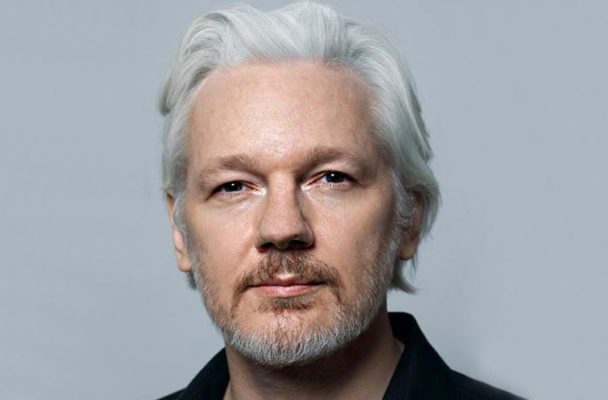Telling the truth isn’t a crime: An analysis on Julian Assange

By Ally Ortolani
Opinion Editor
When we look back in history where monumental change has been made — one obvious example being the women’s suffrage movement — it wouldn’t have been possible without free speech. We owe it to free speech in most instances, if not all, where monumental change has been made.
People can speak and express themselves via social media, send an angry tweet about a political figure, peacefully protest or do virtually anything — all because of free speech.
Despite the recent chaos in our nation, as individuals, we should be able to feel comfortable being in a room with others who disagree with us. My best friends, who I have known for over 15 years, have different political ideals than myself, and we don’t let it affect our friendship. Nonetheless, free speech remains a pressing issue.
And with regards to free speech, let’s talk about Julian Assange, the infamous WikiLeaks founder. For those who don’t know who Assange is, allow me to give you a brief overview.
Assange is a 47-year-old Australian who founded WikiLeaks, a nonprofit organization that publishes leaked materials from a wide range of sources. Currently, Assange is located in HM Prison Belmarsh in London where he is being held for violating the U.S. Espionage Act for both his role in obtaining and publishing secret military and diplomatic documents in 2010.
In one video, a United States helicopter fires and kills five civilians in Baghdad, Iraq. But there’s a catch: He’s not even an American citizen. In fact, he’s from Australia, which makes his case even more bizarre.
Some refer to Assange as a “champion of government transparency,” for exposing the war crimes of the United States. Others are not fond of him, hence why he is still in prison. And with former President Donald Trump out of office, there’s no chance he’ll be pardoned any time soon.
“[U.S.] Justice Department spokespeople have insisted that the case does not implicate press freedom because Assange himself is not a journalist and because WikiLeaks, which Assange founded, is not a media organization,” said Jameel Jaffer, inaugural director of the Knight First Amendment Institute at Columbia University, in a January 2021 NBC article.
As journalists, I would hope individuals would understand how the U.S. Justice Department’s case against Assange raises many concerns with regards to press freedom. Assange should be applauded for his investigative journalism skills.
Instead, he is stuck in a top-security prison. Even worse, the conditions of the prison are horrendous. In fact, Assange is said to be in confinement following a coronavirus outbreak, according to a December 2020 Euro News article.
Think about it: Assange is being treated more harshly than someone being charged for crimes of violence or terrorism. And for what? Exposing the war crimes of the United States? Since when was telling the truth a crime?
With 18 counts of violating the Espionage Act on his indictment, according to AP News, his case continues to pose a threat to investigative journalists who write about national security matters. What will happen to journalists then?
“Assange argues he was acting as a journalist entitled to First Amendment protection and says the leaked documents expose U.S. military wrongdoing,” said Jill Lawless for AP News.
According to James Lewis, a British lawyer representing the U.S. government, Assange was guilty of “’straightforward criminal activity trying to hack the computer.” He also mentioned that Assange’s WikiLeaks activity “created a ‘grave and imminent risk’ to U.S. intelligence sources in Afghanistan and Iraq.”
It sounds like the United States doesn’t want to be exposed for its wrongdoings.
In this day and age where journalists are fervently attacked, I intend to always exercise my First Amendment rights.
Free Assange, plain and simple. Telling the truth isn’t a crime.